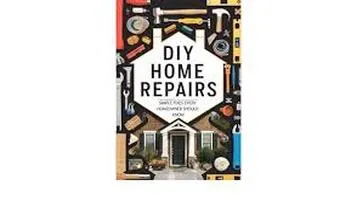DIY Home Repairs: A Comprehensive Guide to Empowering Homeowners
DIY home repairs involve individuals undertaking maintenance and repair projects around their homes without professional assistance. This approach empowers homeowners to address minor issues, enhance skills, and save money. Common DIY tasks include fixing leaky faucets, patching drywall, painting, and basic electrical or plumbing repairs. Essential tools for these projects often include a hammer, screwdriver set, pliers, tape measure, and a drill. Online tutorials, instructional videos, and home improvement books provide guidance and confidence for tackling various tasks. While DIY repairs can be rewarding, it's crucial to know one's limits and prioritize safety, particularly with complex or hazardous tasks. Proper planning, research, and patience can lead to successful outcomes and increased home value, making DIY home repairs a fulfilling endeavor.

In today's age of information and self-sufficiency, the allure of Do-It-Yourself (DIY) home repairs has grown exponentially. The promise of saving money, the thrill of learning new skills, and the satisfaction of completing a project with your own hands are compelling reasons why more homeowners are taking the plunge into DIY territory. Having recently delved deep into this world myself, I feel well-equipped to offer a detailed review of the DIY home repair experience and its manifold facets.
The Initial Appeal
The first thing that strikes you about DIY home repairs is the potential for cost savings. Professional contractors and repair services can be expensive, and the opportunity to cut those costs by doing the work yourself is incredibly appealing. Additionally, the sense of empowerment that comes from mastering skills traditionally reserved for professionals cannot be overstated. For many, DIY repairs are more than just a means to an end—they're a hobby, a passion, and a way of life.
The Learning Curve
However, the journey into DIY home repairs isn’t without its challenges. One of the most significant hurdles is the steep learning curve associated with many projects. While there are numerous online resources, including YouTube videos, blogs, and forums, the sheer volume of information can be overwhelming for beginners. It's not uncommon to spend hours researching before even picking up a tool.
Many DIY enthusiasts recommend starting with smaller, manageable projects to build confidence and skills. Simple tasks like fixing a leaky faucet, patching up drywall, or replacing a broken tile can serve as excellent entry points. These projects typically require basic tools and materials, and there are ample resources available to guide you through the process step-by-step.
Tools and Equipment
Another critical aspect of DIY home repairs is the need for appropriate tools and equipment. While some basic tools like screwdrivers, hammers, and pliers are staples in most households, more specialized tools might be necessary for certain projects. Investing in quality tools can be daunting, especially for those on a tight budget. However, it's important to recognize that good tools are an investment that pays off in the long run. Many DIYers recommend starting with a foundational set of tools and gradually expanding your collection as you take on more complex projects.
The Satisfaction of Completion
One of the most rewarding aspects of DIY home repairs is the immense satisfaction that comes with successfully completing a project. There's a unique sense of pride in knowing that your hard work and effort have directly contributed to improving your living space. Whether it's a freshly painted room, a newly installed light fixture, or a beautifully landscaped garden, the results of your labor are tangible and immediate.
Moreover, the skills you acquire through DIY home repairs are transferable and can be applied to future projects. Over time, your confidence and proficiency will grow, enabling you to tackle more ambitious and complex tasks. Many DIY enthusiasts find that the sense of accomplishment and self-reliance they gain from these projects is deeply fulfilling and motivating.
The Pitfalls and Realities
Despite the many benefits, it's essential to acknowledge the potential pitfalls of DIY home repairs. Mistakes can be costly, both in terms of time and money. A botched repair job might necessitate professional intervention, negating any initial savings. Additionally, certain tasks—such as electrical work, plumbing, and structural repairs—can pose significant risks if not done correctly. It's crucial to know your limits and recognize when it's best to call in a professional.
Another consideration is the time commitment involved. DIY projects can be time-consuming, particularly for those with busy schedules. It's important to set realistic expectations and be prepared for unexpected challenges and delays. The key is to approach each project with patience and perseverance, understanding that learning and improvement often come through trial and error.
The Community and Support
One of the often-overlooked aspects of DIY home repairs is the sense of community and support that exists among enthusiasts. Online forums, social media groups, and local workshops provide valuable opportunities to connect with like-minded individuals, share experiences, and seek advice. This sense of camaraderie can be incredibly encouraging, especially for those new to the DIY realm. Furthermore, many communities offer resources such as tool libraries and classes, making it easier for beginners to get started.
Conclusion
In conclusion, DIY home repairs can be an immensely rewarding endeavor, offering significant cost savings, personal satisfaction, and valuable skill development. However, it's important to approach these projects with a realistic understanding of the challenges and potential pitfalls involved. With the right mindset, tools, and resources, homeowners can successfully navigate the world of DIY repairs and enjoy the many benefits it has to offer. Whether you're a seasoned DIYer or a novice looking to dip your toes into the waters, the journey is well worth embarking on.






